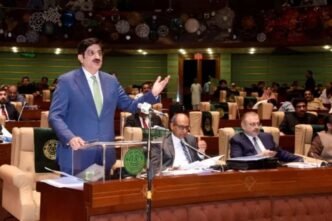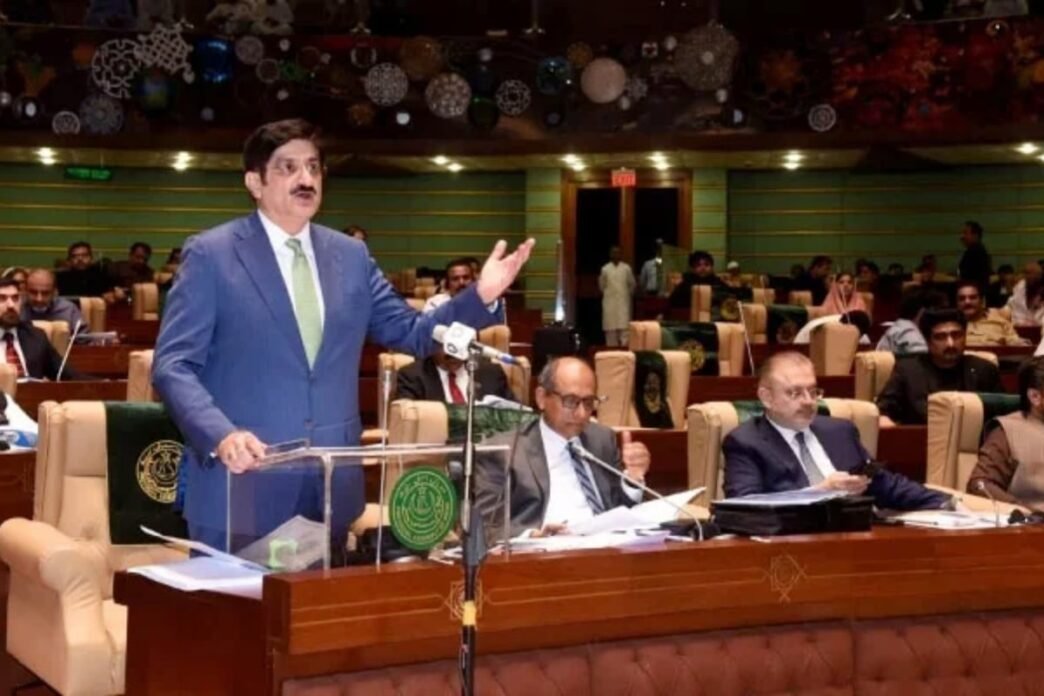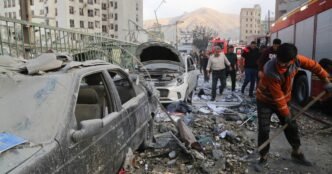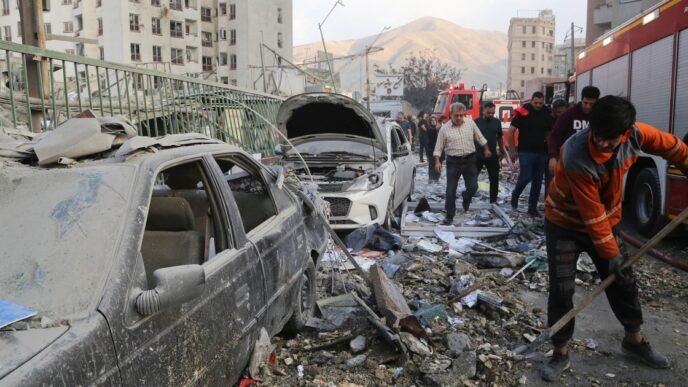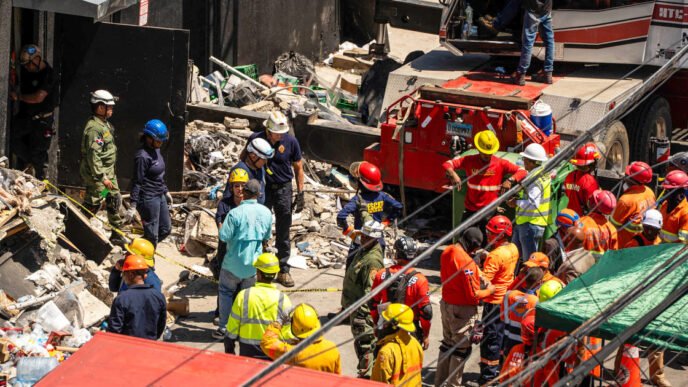CM Murad unveils Rs3, 450bn Sindh budget 2025-26
KARACHI: Chief Minister Sindh Murad Ali Shah presented a provincial budget of Rs3, 450 billion for the fiscal year 2025-26 in the Sindh Assembly, marking a 12.9% increase from last year budget.
The budget emphasizes sal increases, major allocations for education and health, development projects across the province particularly in Karachi and a push for transport, infrastructure, and digital reforms.
Relief for employees and pensioners
CM Shah announced a 12% increase in salaries for government employees from Grade 1 to 16, and a 10% increase for those in Grades 17 to 22. The pensions have been raised by 8%, with a special increase in the conveyance allowance for differently-abled employees. The government has also pledged full clearance of pending pension liabilities.
Record allocation for education and health
The education budget saw a 12.4% rise, bringing the total allocation to Rs523.73 billion, which accounts for 25.3% of the province’s recurring expenditure.
Key education initiatives include: Rs20 billion increase for prim education, Rs77.2 billion for second education, recruitment of 4,400 new teachers and staff, establishment of four new IBA community colleges and Rs2 billion for the Sindh Educational Endowment Fund.
Additionally, a dedicated budget has been set aside for over 34,100 schools across the province.
The health sector received an 8% boost, bringing its total allocation to Rs326.5 billion. Major health initiatives include: Rs19 billion for SIUT (Sindh Institute of Urology and Transplantation), Rs16.5 billion for People’s Prim Healthcare Initiative (PPHI), Rs10 billion for a new hospital in Larkana, and expansion of rural ambulance services and mobile health units.
Development projects and infrastructure
Due to limited fiscal space, the Annual Development Programme (ADP) has been capped at Rs520 billion, including 475 new development schemes.
Breakdown of development allocations: Rs99.6 billion for education-related development projects, Rs45.37 billion for health infrastructure, Rs73.9 billion for irrigation and water management and Rs132 billion allocated for local government institutions
The budget reflects Sindh’s continued focus on inclusive growth, public welfare, and infrastructure modernization, despite national-level fiscal constraints.
